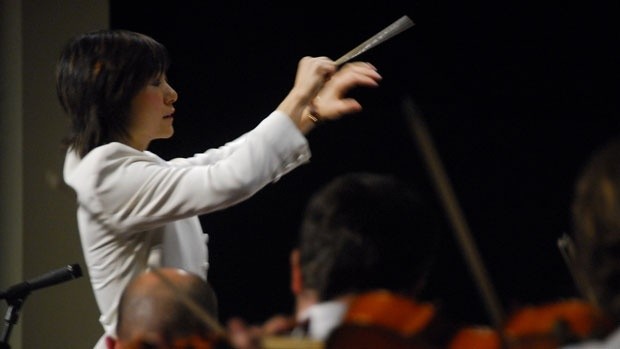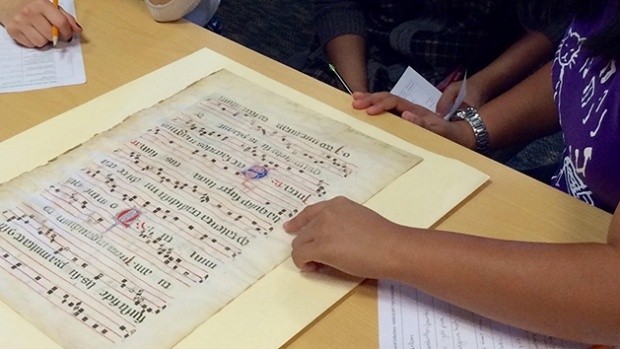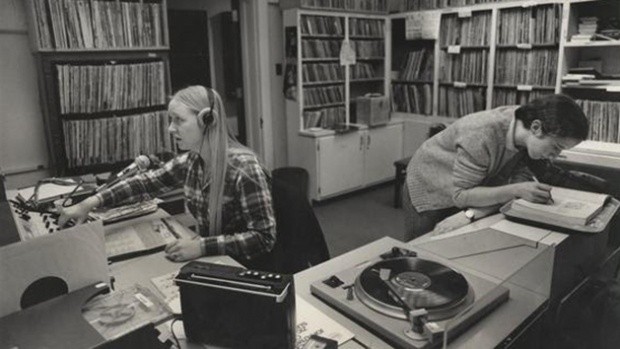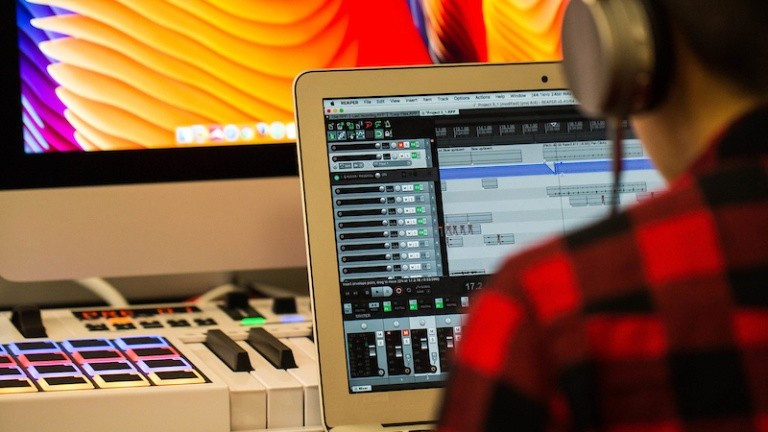Music administration, as a specialty within arts administration, generally refers to professional work that helps music and musicians connect with audiences. It can cover a host of careers in the public, private, and nonprofit sectors, including (but not limited to) such industries and career paths as:
- Orchestra management, opera management, and artist management
- Publicity and public relations and concert promotion
- Record label and streaming media management
- Music librarianship and orchestra librarianship
- Music museums and music programming for museums
- Music publishing
- Music licensing
- Outreach, fundraising, grant writing, development
- Music advocacy and policy
- Startups and entrepreneurial initiatives
Requirements for further studies in the field
A career in music administration does not necessarily require graduate study, but there are a growing number of graduate and post-baccalaureate certificate programs in arts administration, arts management, music business, etc. These programs are often 1-2 years in duration and include networking and internships alongside coursework. Many programs are offered online to accommodate professionals’ work schedules. If you are considering a career or graduate study in a field of music administration, here are some things you can do while an undergraduate to get to know your options:
- talk with Mount Holyoke music department faculty in your area(s) of interest to learn more about their career paths and experiences
- browse some of the websites for the societies and organizations that represent your area(s) of interest in music administration (for links, see “Professional Organizations” below)
- attend a symposium or conference hosted by an organization or graduate program in music or arts administration
- subscribe to an email listserv hosted by an organization in music or arts administration
- reach out to Mount Holyoke alums working in your area(s) of interest, to hear from them about their experiences
- seek out internships and entry-level jobs in your area(s) of interest
Complementary skills
Professionals working in the music industry need a host of skills in addition to a passion for and familiarity with music, such as:
- entrepreneurial thinking
- collaboration and leadership
- self-motivation, resilience, and flexibility
- an awareness of global, social, and sustainability issues as they impact music industries and economies
- an eye for arts-oriented business principles, especially communication, marketing, and fundraising
- strong computer, web, and social media skills
Courses
Relevant music courses (Mount Holyoke)
- Music and Technology (Music 102)
- World Music (Music 226)
- Music Ensembles
Please look at the current course offerings at the department to ascertain what is available in the current term.
Relevant non-music courses (Mount Holyoke)
See courses in:
- World Languages and Cultures (various departments, degrees, and programs)
- Performing and Visual Arts (various departments, degrees, and programs)
- Entrepreneurship, Organizations, and Society (interdisciplinary minor)
- sample courses: Financial Accounting (EOS 205), Entrepreneurship: Opportunity and Impact (EOS 210), Non-Profit Business Practice (EOS 220), International Marketing (EOS 299) Economics (major/minor), Nonprofit Organizations (Nexus), and Global Business (Nexus)
- Economics (major/minor) and Global Business (Nexus)
Selected courses available in the Five Colleges
See music courses in the Five College Catalog for up-to-date course information.
Sample courses in Arts Management:
- Introduction to Arts Management (UMass Amherst Arts Extension)
- Arts Programming (UMass Amherst Arts Extension)
- Greening/Nonprofit Arts Organizations (UMass Amherst Arts Extension)
- Intro to Community Engagement (UMass Amherst Public Policy & Administration)
- Theater Public Relations and Outreach (UMass Amherst Theater)
- Principles of Management (UMass Amherst Management)
- New Ventures (UMass Amherst Management)
- Social Entrepreneurship (UMass Amherst Management)
See also the UMass Amherst Arts Extension Service, which offers online and on-campus courses, certificates, and a BA in Arts Management.
On-campus and regional organizations, non-profits, and opportunities
- Berkshire Hills Music Academy (South Hadley, MA)
- Northampton Community Music Center (Northampton, MA)
- Music in Common (Sheffield, MA)
- Circle World Arts (Boston, MA)
- Institute for the Musical Arts (Goshen, MA)
- Massachusetts Cultural Council (Boston)
- Community Music Center of Boston
- Community MusicWorks (Providence, RI)
- New England Foundation for the Arts - Music (Boston)
- Hire Culture - Creative Employment in Massachusetts
- Folk Arts Center of New England (Stoneham, MA)
See also:
Professional organizations, non-profits, and opportunities further afield
Note: this is only a selected list; there are many more organizations representing specific genres, instruments, and aspects of the music industry.
Industry organizations:
- Americans for the Arts
- Musical America
- Recording Industry Association of America
- IFPI (International Federation of the Phonographic Industry)
- National Music Publishers Association
- BMI (Broadcast Music, Inc.)
- ASCAP (American Society of Composers, Authors, and Publishers)
- A2IM (American Association of Independent Music)
- International Alliance for Women in Music
- MLA (Music Library Association)
- Major Orchestra Librarians’ Association
- New Music USA
- OPERA America
- Chorus America
- Sphinx Organization (Detroit)
- Intersection for the Arts (San Francisco)
- Zoo Labs (West Oakland, CA)
- Music and Entertainment Industry Educators Association
- Association of Arts Administration Educators
Museums and Government Centers:
- NEA (National Endowment for the Arts) - Music
- Library of Congress: Music Division
- Library of Congress: American Folklife Center
- Music at the Smithsonian
- Smithsonian Folkways
- National Music Museum (Vermillion, SD)
- Musical Instrument Museum (Phoenix)
- Stax Museum of American Soul Music (Memphis)
International Music Organizations and World Music Initiatives:
- Center for World Music (San Diego)
- Playing for Change (Venice, CA)
- World Music Foundation (Chicago)
- UNESCO International Music Council and Creative Cities Network (Paris)



